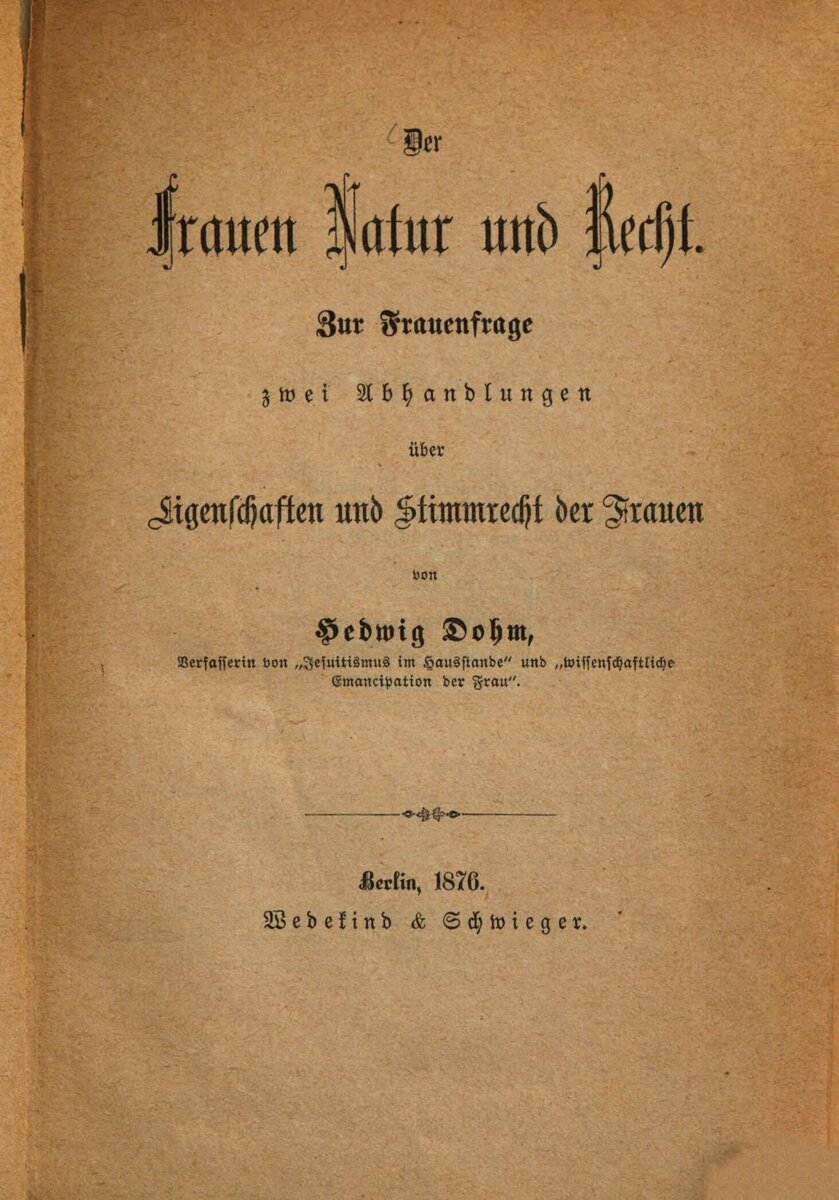Source

Source: Cover image, Hedwig Dohm, Der Frauen Natur und Recht: Zur Frauenfrage zwei Abhandlungen über Eigenschaften und Stimmrecht der Frauen [Women’s Nature and Right: On the Woman Question Two Treatises on Women’s Property and Right to Vote]. Berlin: Wedekind und Schwieger, 1876. Digitized by the Bavarian State Library, https://mdz-nbn-resolving.de/details:bsb11127057